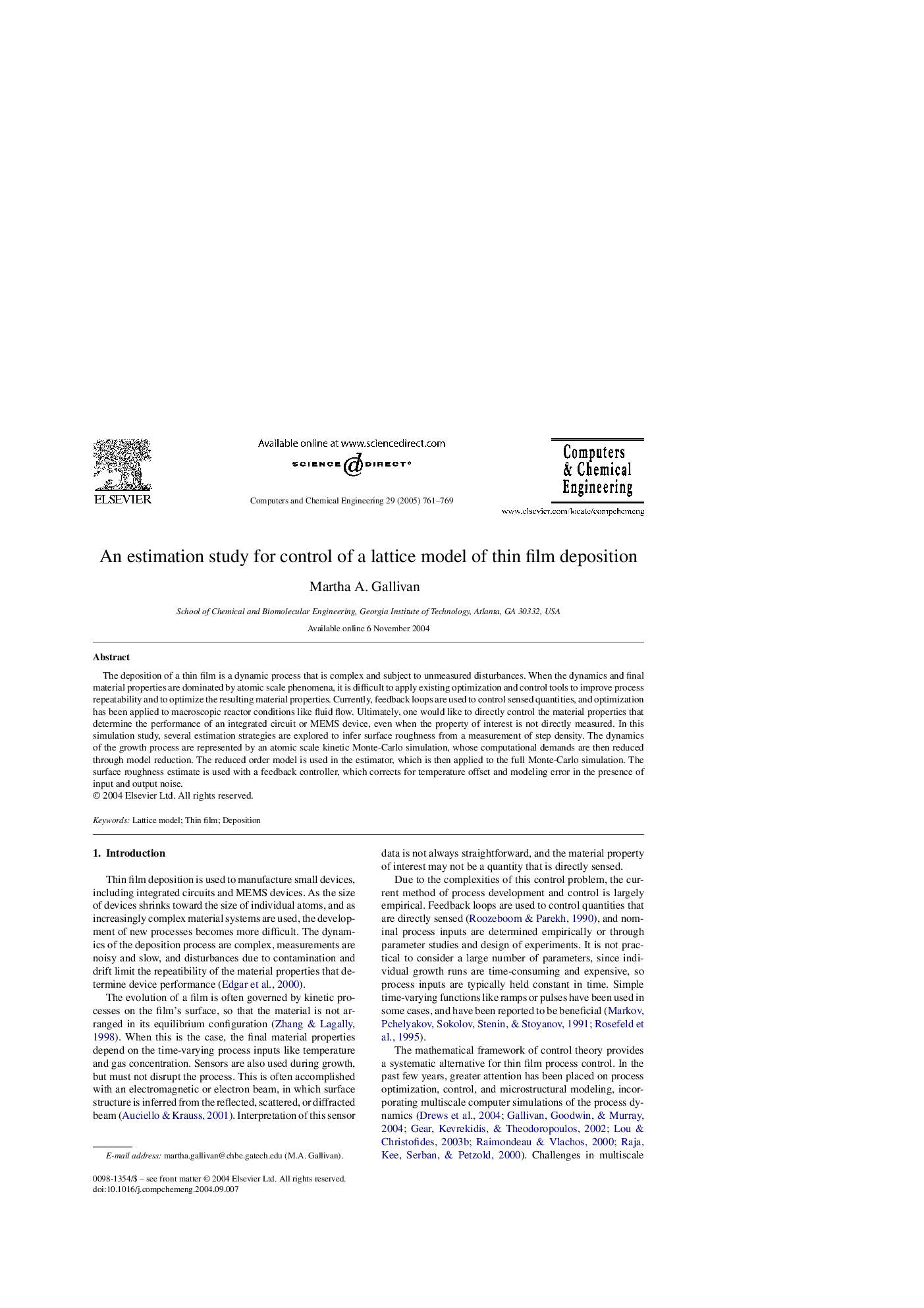| Article ID | Journal | Published Year | Pages | File Type |
|---|---|---|---|---|
| 10265901 | Computers & Chemical Engineering | 2005 | 9 Pages |
Abstract
The deposition of a thin film is a dynamic process that is complex and subject to unmeasured disturbances. When the dynamics and final material properties are dominated by atomic scale phenomena, it is difficult to apply existing optimization and control tools to improve process repeatability and to optimize the resulting material properties. Currently, feedback loops are used to control sensed quantities, and optimization has been applied to macroscopic reactor conditions like fluid flow. Ultimately, one would like to directly control the material properties that determine the performance of an integrated circuit or MEMS device, even when the property of interest is not directly measured. In this simulation study, several estimation strategies are explored to infer surface roughness from a measurement of step density. The dynamics of the growth process are represented by an atomic scale kinetic Monte-Carlo simulation, whose computational demands are then reduced through model reduction. The reduced order model is used in the estimator, which is then applied to the full Monte-Carlo simulation. The surface roughness estimate is used with a feedback controller, which corrects for temperature offset and modeling error in the presence of input and output noise.
Keywords
Related Topics
Physical Sciences and Engineering
Chemical Engineering
Chemical Engineering (General)
Authors
Martha A. Gallivan,
